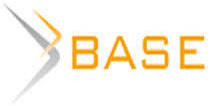ON THE ISSUE OF DIGITAL TRANSFORMATION OF ORGANIZATIONAL AND BUSINESS PROCESSES
The paper considers the problems of digital transformation of organizational and business processes. The analysis of such concepts as "digital transformation" and "digitalization" is given. From the standpoint of systems theory, an example of an abstract organizational system that can be digitally transformed is considered. It is shown that the calculation of systems as functional objects allows us to give a formal description of the process of digital transformation of a system, which consists in converting a system from one type to another, according to the adopted alphabet of elementary systems (nodal objects). Representation of an organizational system as a triune structure "node-function-object" allows us to distinguish between individual aspects of digital transformation. The paper shows that during digital transformation of an organizational system, structural, functional and object characteristics change. An attempt to apply the theory of system-object modeling allows us to talk about the possibility of developing a well-founded method for digital transformation of a system, which allows us to predict the degree of success of this process.
Bobyshev P.P., Zhikharev A.G., Gapiconov I.Yu. On the issue of digital transformation of organizational and business processes // Research result. Information technologies. – T.9, №4, 2024. – P. 4-10. DOI: 10.18413/2518-1092-2024-9-4-0-1
















While nobody left any comments to this publication.
You can be first.
1. Digital Economy of the Russian Federation. – Ministry of Digital Development, Communications and Mass Media of the Russian Federation. – URL: https://digital.gov.ru/ru/activity/directions/858/ (access date: 12.11.2024).
2. Portal of State Services. Unified portal of state services. – URL: https://www.gosuslugi.ru/ (access date: 12.11.2024).
3. Nalog ru. Federal Tax Service. – URL: https://www.nalog.gov.ru/rn77/ (access date: 14.11.2024).
4. Alieva E.F., Alekseeva A.S., Vandanova E.L., Kartashova E.V., Rezapkina G.V. Digital retraining: training of heads of educational organizations // Educational policy. 2020. – № 1(81). – P. 54-61.
5. Pankratov I. YU., Svertilova N. V., Lide E. N. Digital state: a new matrix of competencies for digital transformation // State Service. 2018. – № 1. – P. 38–43.
6. Gorelov N. A., Korableva O.N. Development of the information society: digital economy // Moscow: Yurait. – 2023. – 242 p.
7. Sergeev L. I., Sergeev D. L., YUdanova A. L. Digital economy // Moscow: Yurait. – 2023. – 438 p.
8. Matorin S.I., Zhikharev A.G. Accounting for system-wide regularities in the system-object modeling of organizational knowledge // Scientific and Technical Information Processing. – 2019. – Vol. 46. – № 6. – P. 1-9.
9. Zhikharev A.G., Korsunov N.I., Mamatov R.A., Shcherbinina N.V., Ponomarenko S.V. 2022. On the Development of an Adaptive Educational Platform Using Machine Learning Technologies. Economics. Information technologies, 49(4): 810–919 (in Russian). DOI 10.52575/2687-0932-2022-49-4-810-819
10. Deeney I. A., Zhikharev A.G., Klyuchnikov D. A., Shurukhina T. N., Gavrilova T. A. Some aspects of AI-technologies in education // Revista San Gregorio. – 2021. – Vol. 44. – P. 186-197.
11. Zhikharev A.G. Formalization of Knowledge by Tools of System-Object Simulation // Lecture Notes in Networks and Systems. – 2022. – Vol. 330. – P. 390- 399.